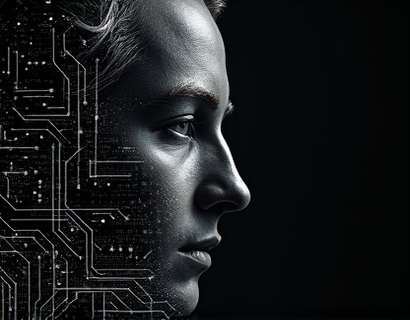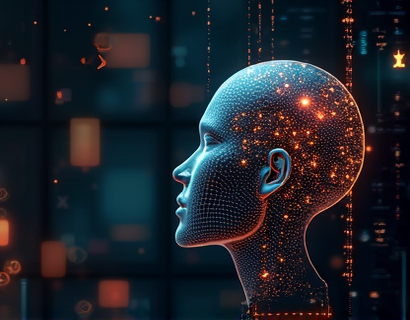Unlocking the Future of Architectural Exploration with AI-Powered Chat Interfaces
The integration of Artificial Intelligence (AI) in the field of architecture has opened new avenues for exploration, learning, and professional development. An AI-powered chat interface stands as a revolutionary tool, offering specialized insights and expert knowledge in a safe and educational environment. This technology is particularly transformative for students, educators, and professionals in the architecture sector, providing a platform that ensures accurate and relevant information for both learning and career advancement.
Enhancing Educational Experiences
The traditional methods of learning architecture can be limited by access to resources, expertise, and real-world examples. An AI-driven chat interface changes this landscape by offering an interactive and dynamic learning experience. Students can engage in real-time conversations with the AI, asking questions about architectural principles, design processes, and industry standards. This interaction not only reinforces theoretical knowledge but also provides practical insights that are crucial for understanding the complexities of architectural practice.
For educators, this technology serves as a valuable tool to supplement classroom teaching. It allows for personalized learning experiences, catering to the diverse needs and paces of students. The AI can adapt its responses based on the user's level of understanding, providing more detailed explanations or simplifying concepts as needed. This adaptability ensures that all students, regardless of their background, can benefit from high-quality educational content.
Ensuring Safety and Accessibility
One of the most significant advantages of an AI-powered chat interface in architecture is its focus on safety and accessibility. The content provided is rigorously verified to ensure accuracy and reliability. This is particularly important in an educational setting where misinformation can lead to misunderstandings and errors in student work. The AI is programmed to cross-reference information with trusted sources, ensuring that users receive the most up-to-date and correct data.
Moreover, the interface is designed with safety in mind, especially for children and young students. The chat environment is child-friendly, with a user interface that is intuitive and easy to navigate. The language used is simple and clear, avoiding complex jargon that might confuse younger users. This makes the platform accessible to a wide range of users, from elementary school children to high school students and beyond.
Specialized Insights and Expert Knowledge
The AI chat interface is equipped to provide specialized insights into various aspects of architecture. Users can explore topics such as sustainable design, urban planning, historical architecture, and modern construction techniques. The AI draws from a vast database of expert knowledge, offering detailed explanations and examples that enrich the learning experience. For instance, a student asking about green building practices might receive a comprehensive response that includes case studies, relevant standards, and the environmental benefits of such approaches.
Professionals in the field can also benefit from this resource. Architects, designers, and engineers can use the chat interface to stay updated on the latest trends and technologies. The AI can provide insights into emerging tools and software, regulatory changes, and innovative design solutions. This continuous learning opportunity helps professionals enhance their skills and remain competitive in a rapidly evolving industry.
Interactive Learning and Collaboration
The AI-powered chat interface fosters an interactive learning environment that encourages collaboration and discussion. Users can engage in multi-user conversations, sharing ideas and insights with peers. This feature is particularly beneficial for group projects and collaborative learning activities. The AI can facilitate these interactions by guiding the conversation, providing prompts, and ensuring that the discussion remains focused and productive.
Additionally, the chat interface can integrate with educational platforms and tools, allowing for seamless integration into existing curricula. Teachers can assign specific topics for exploration, and the AI can provide structured responses and resources to support these assignments. This integration enhances the overall educational experience, making it more engaging and effective.
Child-Friendly Features
For younger users, the chat interface includes several features designed to enhance the learning experience and ensure a safe environment. The AI uses age-appropriate language and examples, making complex concepts more relatable and understandable. The interface also includes interactive elements such as quizzes, games, and visual aids that make learning fun and engaging.
Parental controls and monitoring tools are available to ensure that children's interactions are appropriate and safe. Parents can set limits on the types of questions and topics their children can explore, and they can receive notifications about their child's activities on the platform. This level of control provides peace of mind for parents while allowing children to explore and learn at their own pace.
Professional Development and Networking
Beyond education, the AI-powered chat interface serves as a valuable resource for professionals seeking to expand their knowledge and network within the architecture community. The AI can connect users with relevant articles, research papers, and industry reports, keeping them informed about the latest developments and best practices.
Professionals can also use the chat interface to ask for advice or seek recommendations on specific projects or challenges. The AI can provide tailored suggestions based on its extensive knowledge base, offering insights that might not be readily available through traditional means. This personalized approach to information retrieval helps users make informed decisions and solve complex problems more effectively.
Building a Community of Practice
The AI chat interface fosters a community of practice where users can share experiences, ask questions, and learn from one another. This community aspect is particularly beneficial for new professionals who may feel overwhelmed by the complexities of the field. Experienced architects and designers can mentor less experienced users, creating a supportive and collaborative environment.
The platform can also host virtual events, webinars, and workshops, further enriching the community experience. These events can cover a wide range of topics, from design competitions to industry trends, providing opportunities for users to engage with experts and peers in real-time.
Future Prospects and Innovations
The potential for AI-powered chat interfaces in architecture is vast, with ongoing advancements promising even more sophisticated and integrated solutions. Future developments may include enhanced natural language processing, allowing for more nuanced and context-aware conversations. The integration of augmented reality (AR) and virtual reality (VR) could also transform the way users interact with architectural concepts, providing immersive experiences that complement the chat interface.
As the technology evolves, the chat interface will continue to adapt, incorporating user feedback and new insights to improve its functionality and relevance. The goal remains to create a resource that is not only informative and educational but also enjoyable and accessible to all users, regardless of their background or experience level.
In conclusion, the AI-powered chat interface represents a significant leap forward in architectural education and professional development. By providing a safe, interactive, and expert-driven environment, it empowers users of all ages to explore the world of architecture with confidence and curiosity. As this technology continues to evolve, it will undoubtedly play a crucial role in shaping the future of the architecture industry.









































